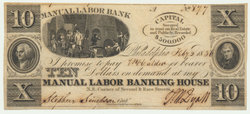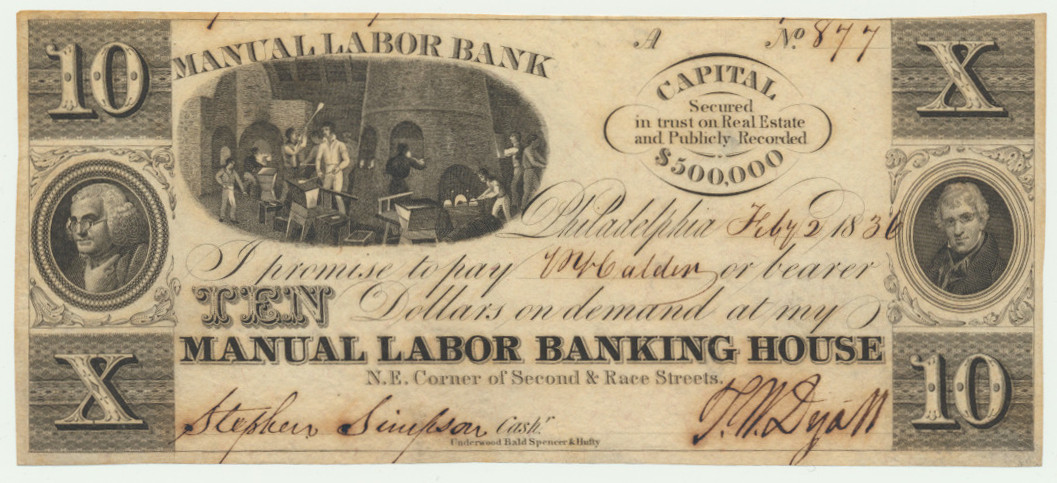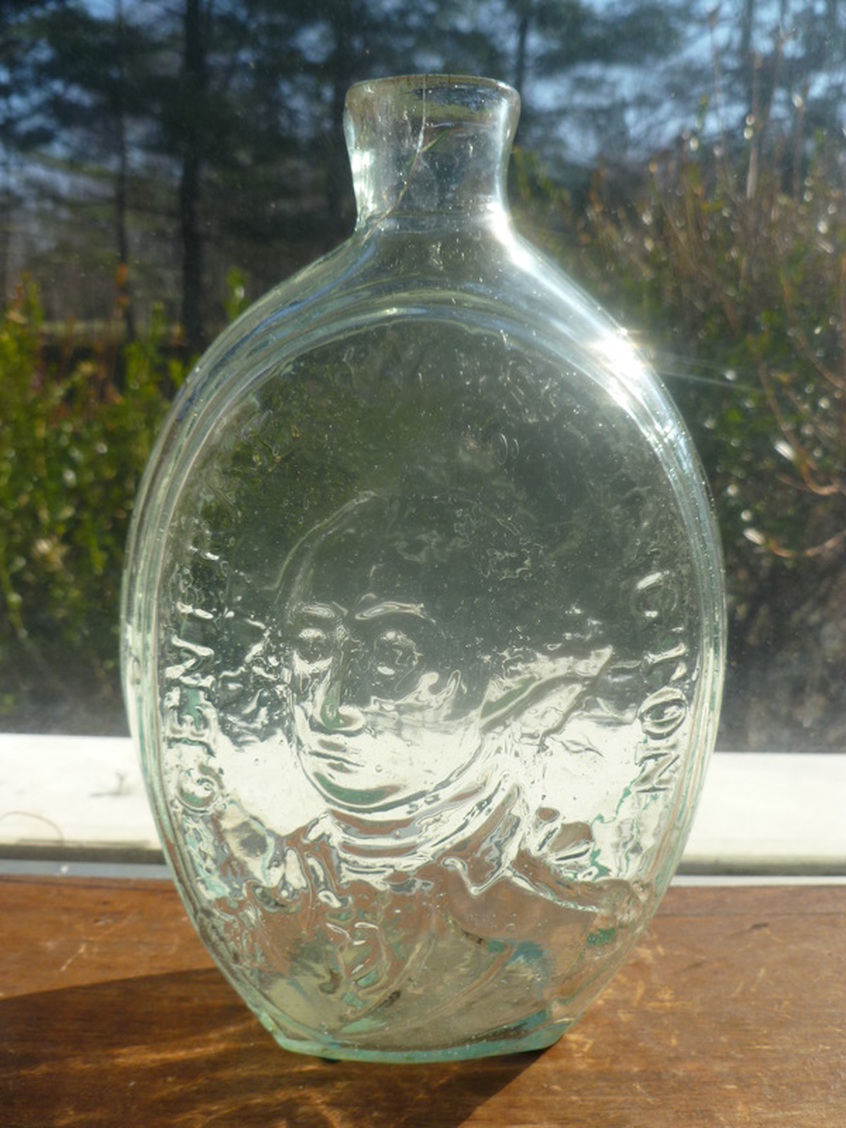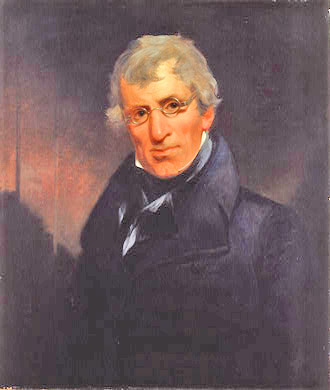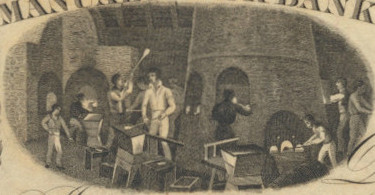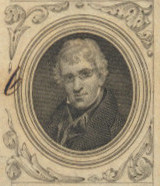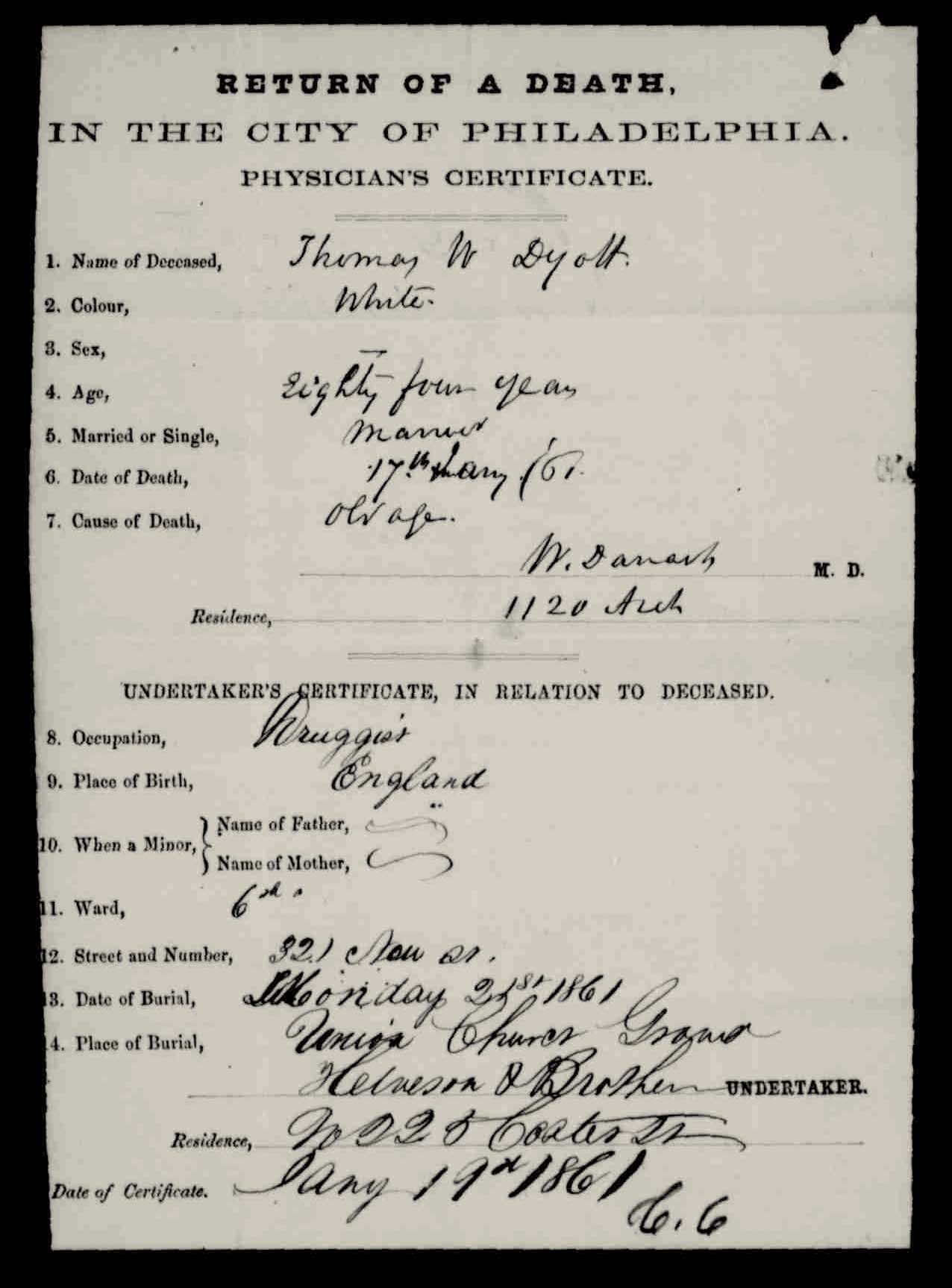Because during his lifetime, Thomas W. Dyott was just considered an ordinary business
man, there exists very little first hand documentation concerning his date and place of birth, what his early life was like, or even the date of his arrival in Philadelphia. Helen
McKearin, in her landmark book, "Bottles, Flasks, and Dr. Dyott" went through
extensive advertisements, obituaries, etc.; to determine the few certain facts that we know
about Thomas W. Dyott and even some of these facts are just a little ambiguous.
To start off, Thomas W. Dyott was born in 1777 in England (or possibly Scotland). He
immigrated to Philadelphia some time between 1795 (when he would have been 18 years
old) and 1805 (when he would have been 28), with Helen McKearin favoring the 1805
end of the spectrum. And quite likely his travels took him from practicing medicine in
London (or at least working for a pharmacist there), to the West Indies, and finally to
Philadelphia.
During his lifetime, Thomas W. Dyott himself claimed to be the grandson of the
celebrated Dr. Robertson of Edinburgh. Unfortunately, not only is there no evidence that he was Dr. Robertson's grandson, but also there is no record of a Dr. Robertson
practicing in Edinburgh during the time. The only other tidbit of information about
Thomas W. Dyott's life during this period is a statement made by one of his intimates,
claiming that Thomas W. Dyott served an apprenticeship to an English druggist, who
taught him the art of making boot-blacking.
Thomas Dyott was a pioneer in the art of advertising and embossed bottle presentation. He had his own bottling factory that grew into quite a lucrative business in it's own right. At one time he had his own bank with it's own currency. The area surrounding his factory was even called Dyottville for a time. In 1839 he was charged with fraud after having financial issues that led him to short his creditors. After two years of serving time in jail he was pardoned by the Governor. He never fully recovered from his sentence but continued in the drug trade until his death in 1861. His bottles are still highly collectable today and bring thousands of dollars at auction.
Because during his lifetime, Thomas W. Dyott was just considered an ordinary business
man, there exists very little first hand documentation concerning his date and place of birth, what his early life was like, or even the date of his arrival in Philadelphia. Helen
McKearin, in her landmark book, "Bottles, Flasks, and Dr. Dyott" went through
extensive advertisements, obituaries, etc.; to determine the few certain facts that we know
about Thomas W. Dyott and even some of these facts are just a little ambiguous.
To start off, Thomas W. Dyott was born in 1777 in England (or possibly Scotland). He
immigrated to Philadelphia some time between 1795 (when he would have been 18 years
old) and 1805 (when he would have been 28), with Helen McKearin favoring the 1805
end of the spectrum. And quite likely his travels took him from practicing medicine in
London (or at least working for a pharmacist there), to the West Indies, and finally to
Philadelphia.
During his lifetime, Thomas W. Dyott himself claimed to be the grandson of the
celebrated Dr. Robertson of Edinburgh. Unfortunately, not only is there no evidence that he was Dr. Robertson's grandson, but also there is no record of a Dr. Robertson
practicing in Edinburgh during the time. The only other tidbit of information about
Thomas W. Dyott's life during this period is a statement made by one of his intimates,
claiming that Thomas W. Dyott served an apprenticeship to an English druggist, who
taught him the art of making boot-blacking.
Thomas Dyott was a pioneer in the art of advertising and embossed bottle presentation. He had his own bottling factory that grew into quite a lucrative business in it's own right. At one time he had his own bank with it's own currency. The area surrounding his factory was even called Dyottville for a time. In 1839 he was charged with fraud after having financial issues that led him to short his creditors. After two years of serving time in jail he was pardoned by the Governor. He never fully recovered from his sentence but continued in the drug trade until his death in 1861. His bottles are still highly collectable today and bring thousands of dollars at auction.
